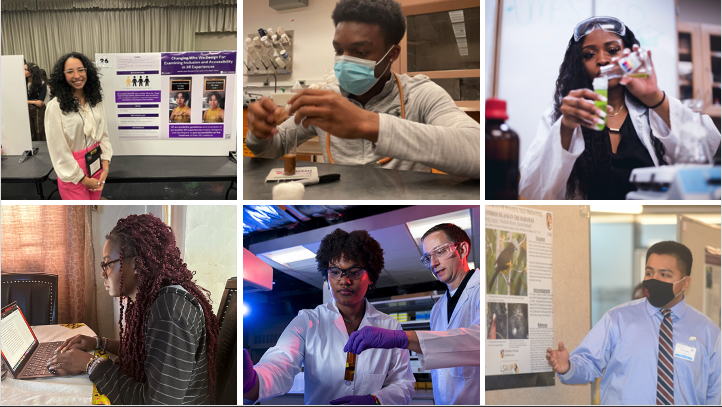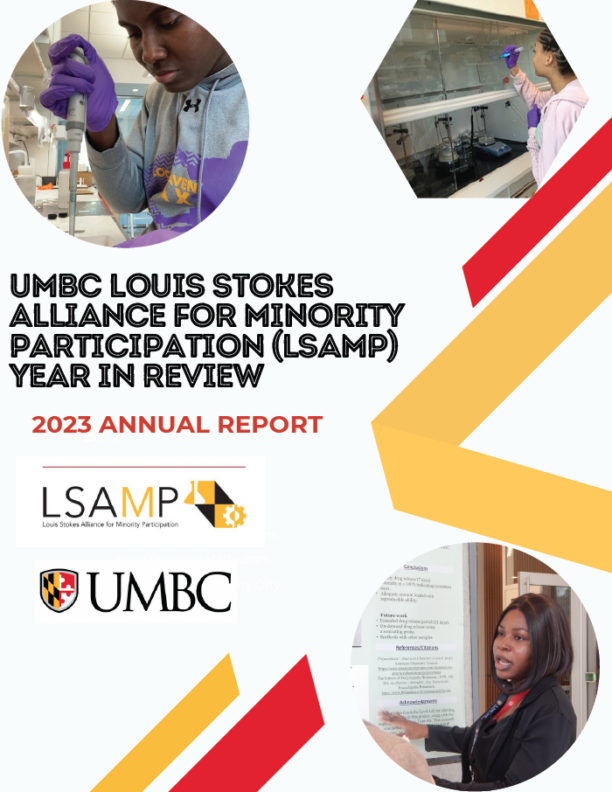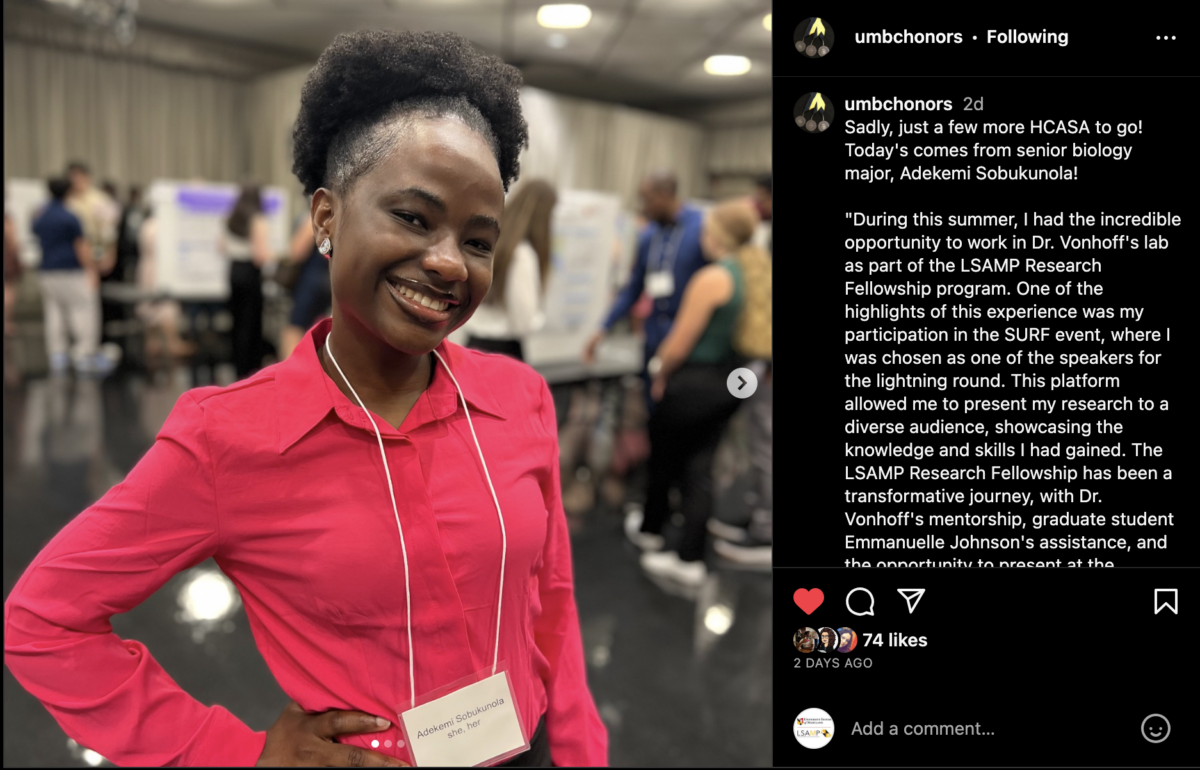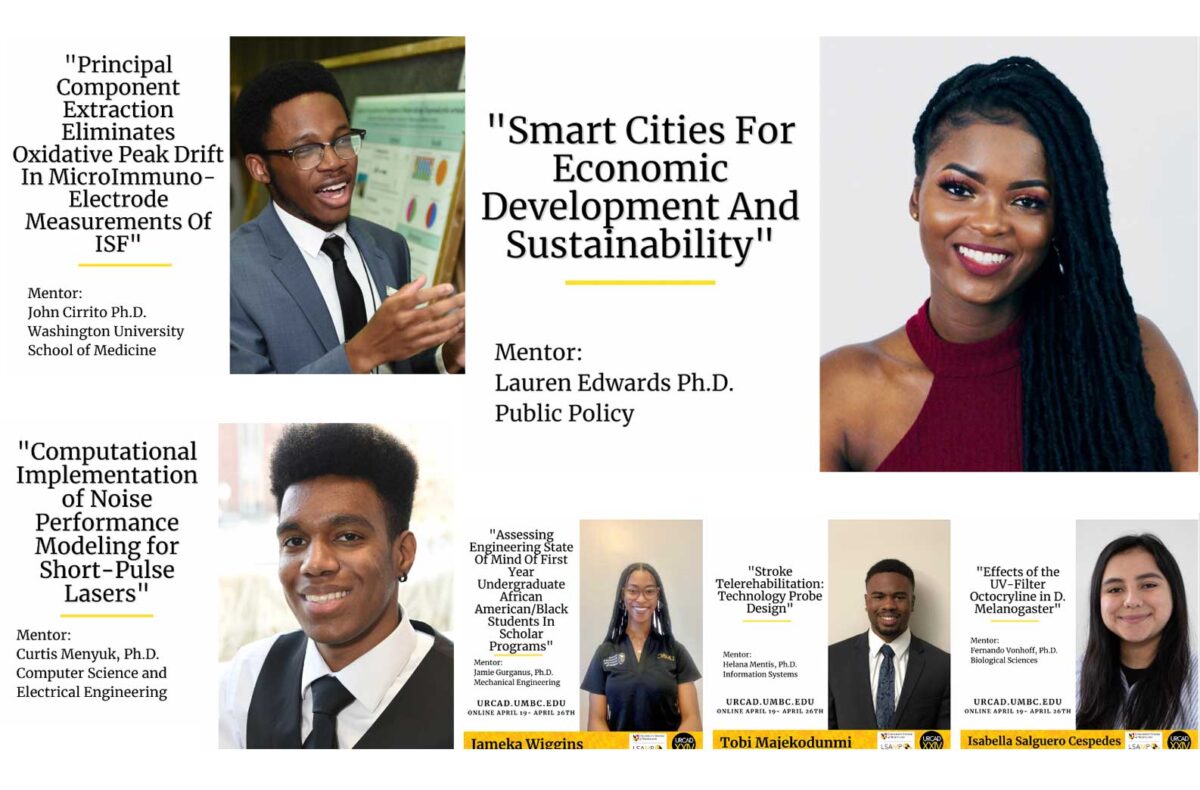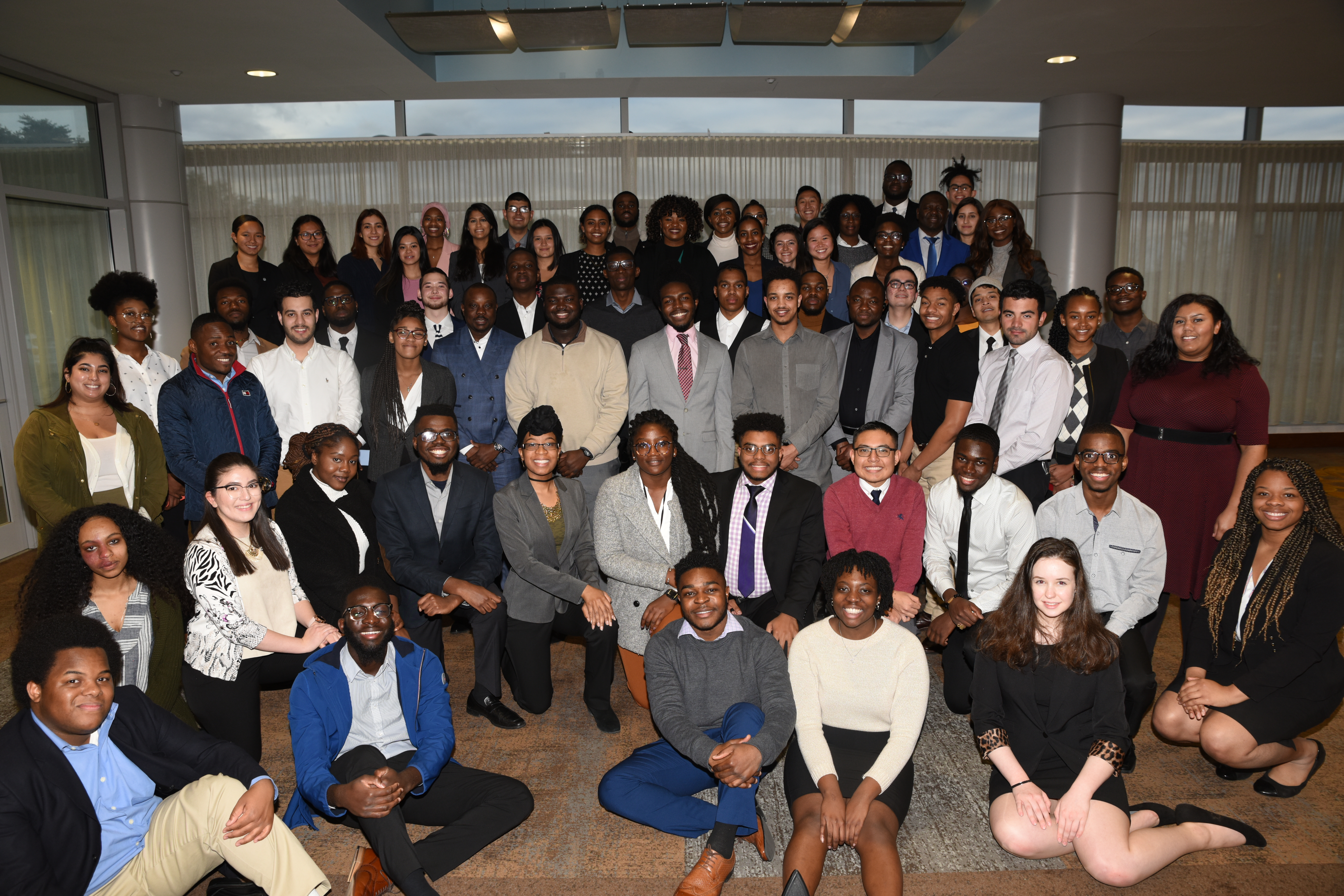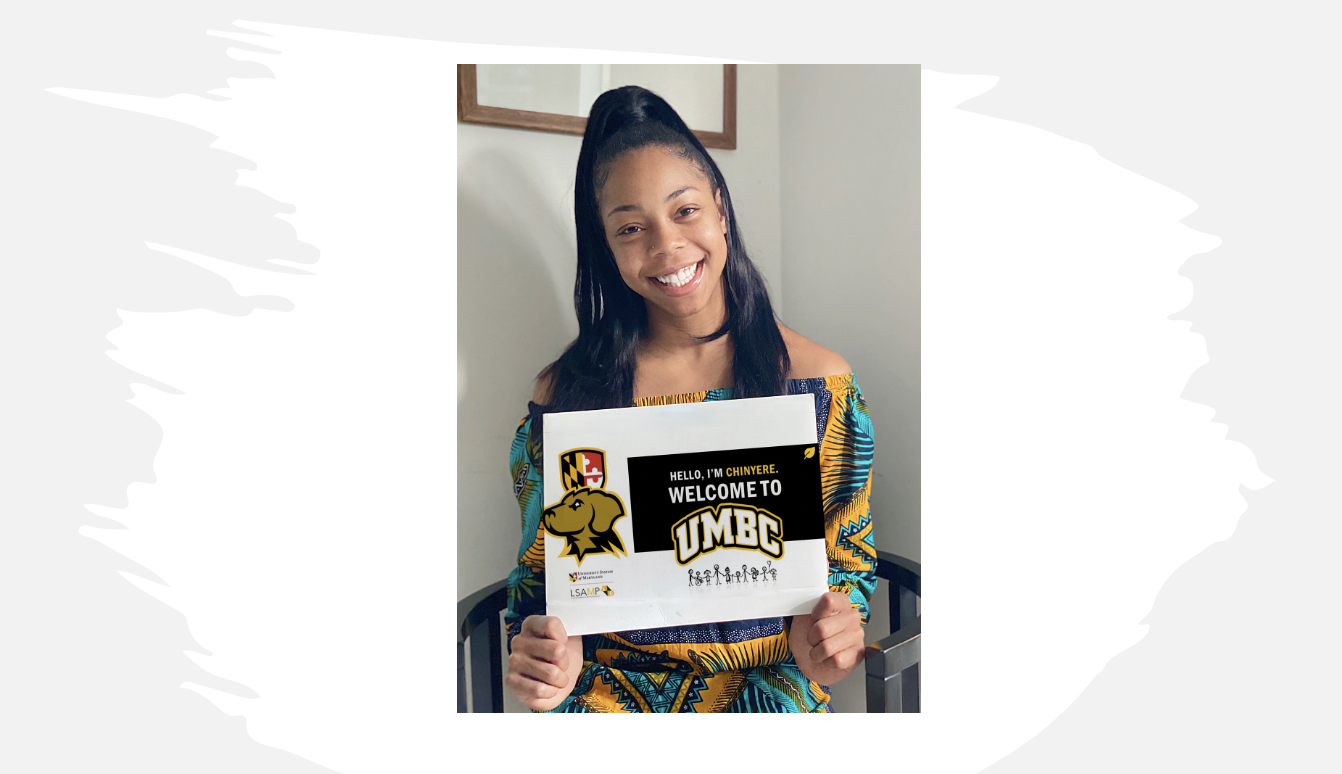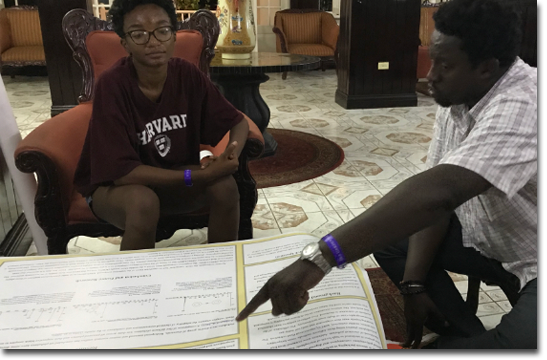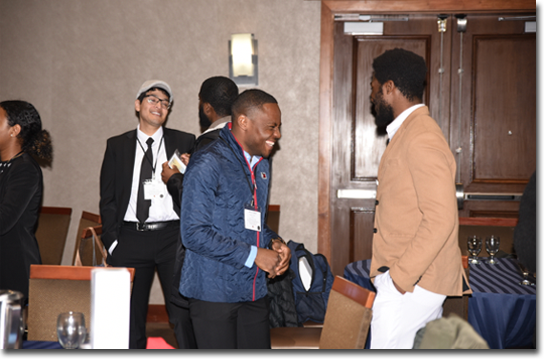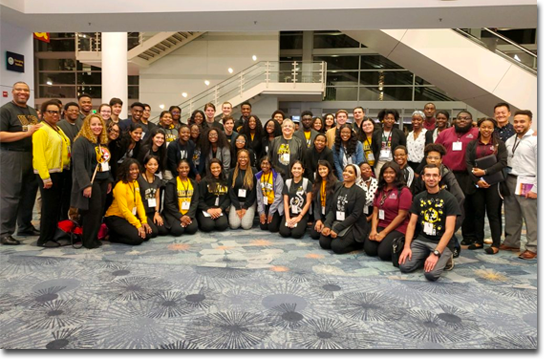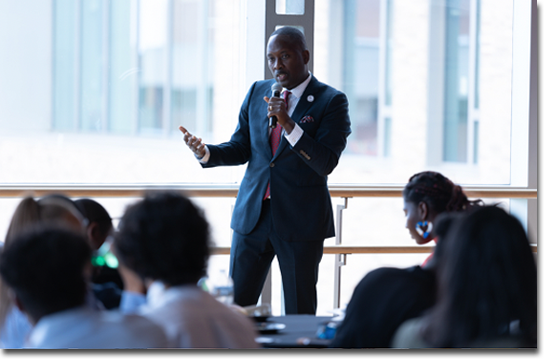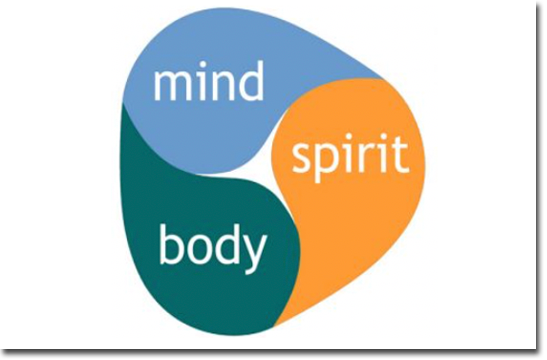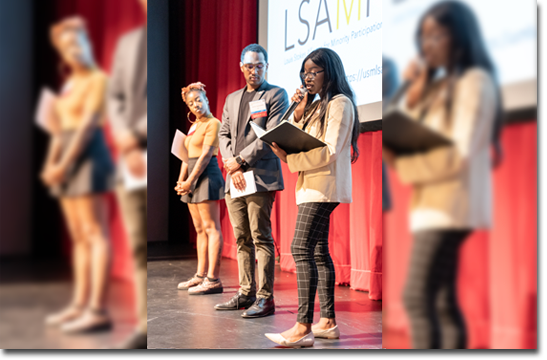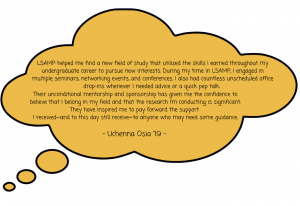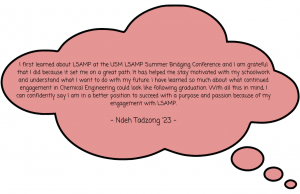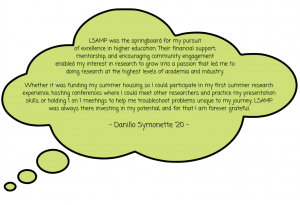______________________________________________________________________________________________________
UMBC LSAMP Experiences includes
Individualized Holistic Advising
Meet individually and in small groups with a member of the LSAMP staff to discuss academic, professional, and personal growth.
Learning Community
Co-construct conversations with your peers to build friendships, gain academic support, and connect ideas across STEM.
Research and Scholarly Activities
Partner with campus faculty to make intellectual contributions in your discipline. Present at national conferences.
Professional Development
Engage in workshops to expand knowledge of discipline and strengthen your skills as a scientist or engineer.
Wellness Sessions
Participate in a series of wellness activities to nurture your mind, body, and spirit. Consider the role of mindfulness in activities.
Student Leadership
Learn to support and advocate for others on campus and in the local, national, and global community.
Graduate School Preparation
Build on knowledge and skills as STEM students to increase interest in graduate education and careers that require graduate education.
Student Testimonials
The Louis Stokes Alliances for Minority Participation (LSAMP) program supports universities and colleges in their efforts to significantly increase the number of students matriculating into and successfully completing high-quality degree programs in Science, Technology, Engineering, and Mathematics (STEM) disciplines, thereby expanding the STEM workforce. Particular emphasis is placed on transforming undergraduate STEM education for all STEM students through innovative, evidence-based recruitment and retention strategies, as well as relevant educational experiences that have been shown to support the success of groups historically underrepresented in STEM disciplines.
The LSAMP Program at UMBC has been funded through an award from the National Science Foundation. Any opinions, findings, and conclusions or recommendations expressed in this material are those of the author(s) and do not necessarily reflect the views of the National Science Foundation (NSF).
Please note: UMBC is committed to creating an accessible and inclusive environment for all students, staff, and visitors. If you have difficulties accessing any of the materials on our site, please contact us so that we can provide an alternative format and remedy any accessibility challenges.
This program is open to full participation by all individuals regardless of race, color, religion, sex, national origin, or any other protected category under applicable federal law, state law, and the University’s nondiscrimination policy.
